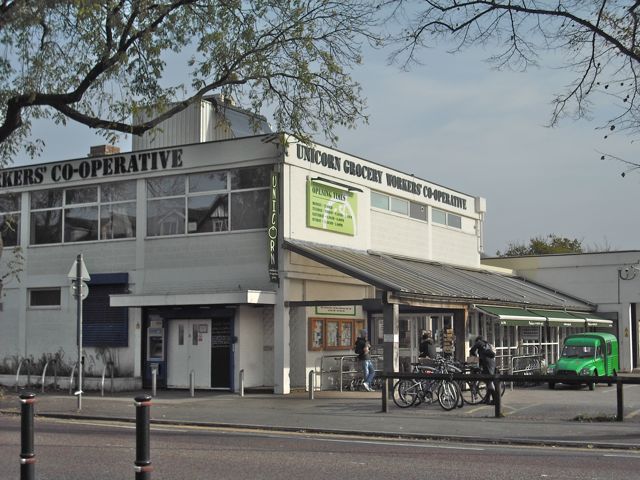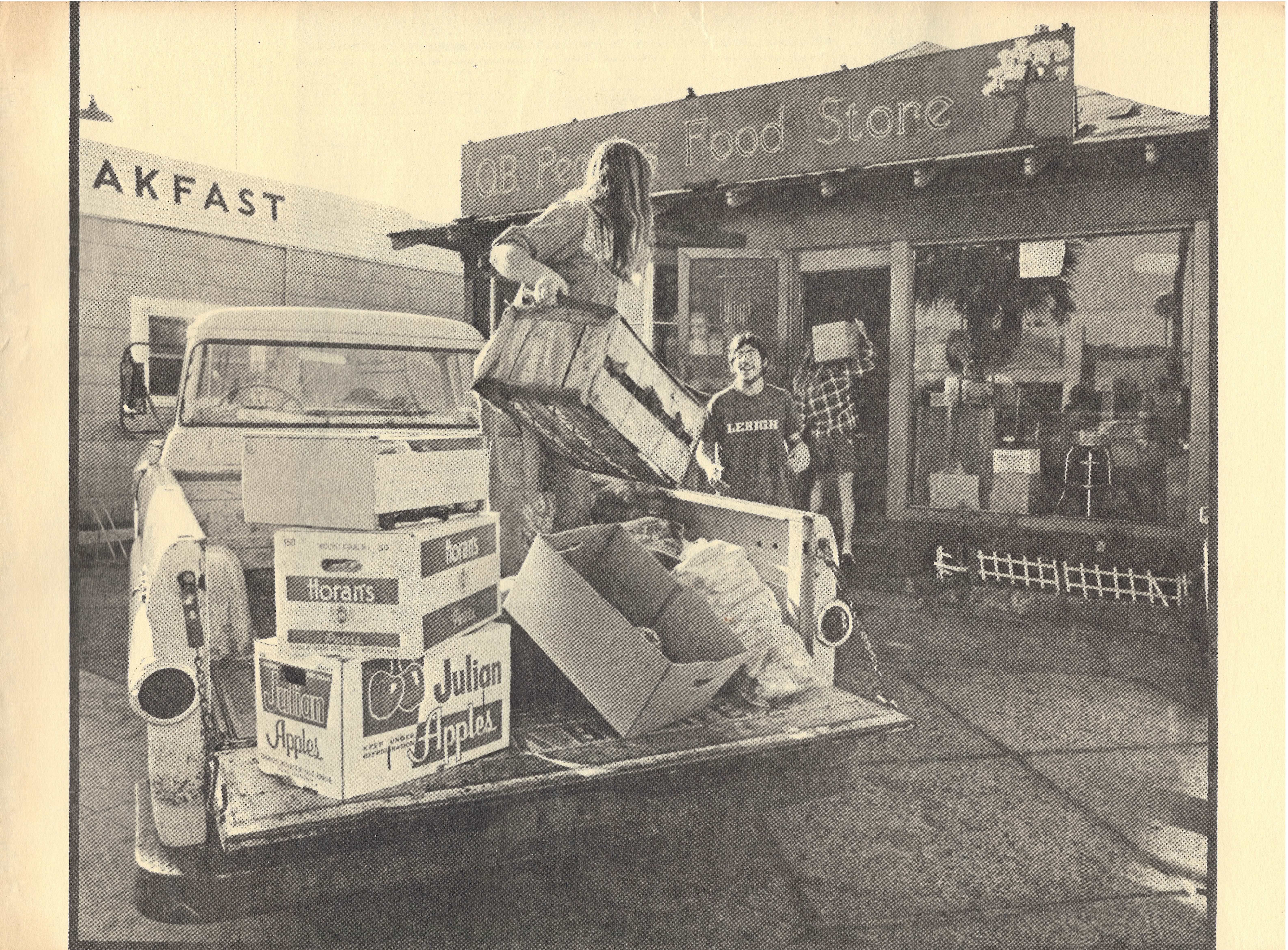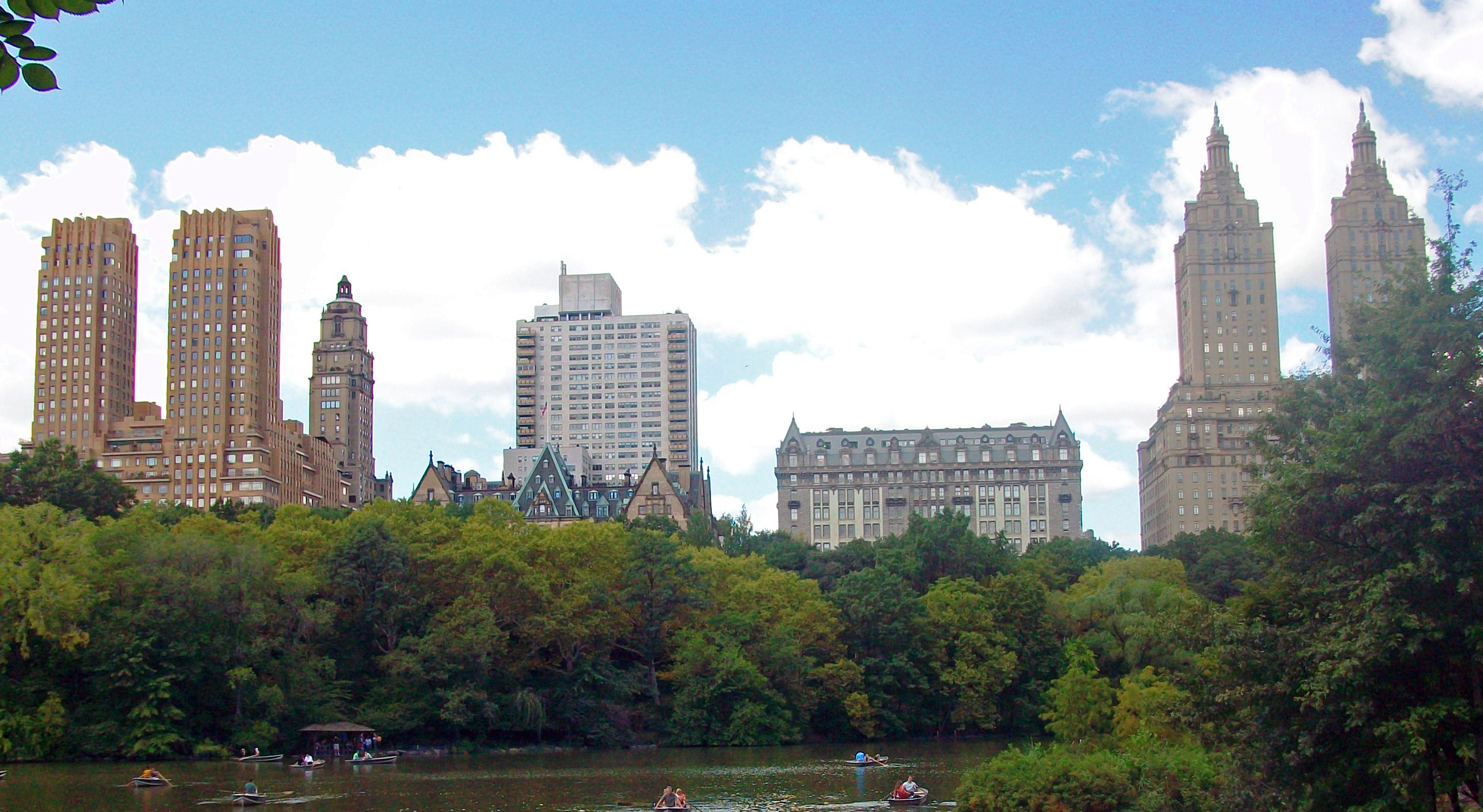|
List Of Food Cooperatives
The following is a list of food cooperative grocery stores and buyers groups, current and defunct. Many of the second-wave food cooperatives formed in the 1960s and 1970s started as buying clubs. This list is not exhaustive, and is limited to notable food cooperatives. Australia * Alfalfa House, Enmore, Sydney Germany * FoodHub, Munich * SuperCoop, Berlin France * La Louve, Paris Ireland * Dublin Food Co-op, Dublin City *The Urban Co-op, Limerick Sweden * Kooperativa Förbundet United Kingdom * Daily Bread Co-operative *Infinity Foods, Brighton * The People's Supermarket *Unicorn Grocery United States * 4th Street Food Co-op, New York City * Berkeley Student Food Collective, Berkeley, California * Boise Co-op, Boise, Idaho * Citizens Co-op, Gainesville, Florida (defunct) * Consumers' Cooperative of Berkeley, Berkeley, California (defunct) * The Cooperative Grocery, Emeryville, California (defunct) * District Grocery Stores – a former cooperative of small single ... [...More Info...] [...Related Items...] OR: [Wikipedia] [Google] [Baidu] |
Food Cooperative
A food cooperative or food co-op is a food distribution outlet organized as a cooperative, rather than a private or public company. Food cooperatives are usually consumer cooperatives, where the decisions regarding the production and distribution of its food are chosen by its members. Like all cooperatives, food cooperatives are often based on the 7 Rochdale Principles, and they typically offer natural foods. Since decisions about how to run a cooperative are not made by outside shareholders, cooperatives often exhibit a higher degree of social responsibility than their corporate analogues. In the United States, the National Cooperative Grocers (NCG) is a cooperative federation that is composed of 146 food cooperatives. History The cooperative movement started in the 19th century and the first notable food cooperative was started in Rochdale, England by industrial weavers known as the Rochdale Pioneers. The origination of the modern cooperative movement began in the 1960s when m ... [...More Info...] [...Related Items...] OR: [Wikipedia] [Google] [Baidu] |
George Street Co-op
The George Street Co-op is a food cooperative located in New Brunswick, New Jersey. The George Street Co-op runs a retail store at 89 Morris Street, selling foods and select hygiene and household products to the general public and to its membership. The Co-op, as it is known to its members, maintains a focus on offering vegetarian,Giampietro, PaoloThe Vegan Times.''The Daily Targum.'' 14 April 2004. organic, local food, naturally grown and fair trade products. This focus on vegetarian fare extends to The Namaste Cafe upstairs. The space upstairs also serves as a community space for everything from yoga classes to comedy shows. History The George Street Co-op was formed in 1973 when ten people from the Rutgers Vegetarian Club started a buying club out of a garage near George Street in New Brunswick. A year later, the Co-op moved to a new building on George Street and opened a small retail store. In May 1988 the George Street Co-op purchased and moved into a new building at ... [...More Info...] [...Related Items...] OR: [Wikipedia] [Google] [Baidu] |
Wedge Community Co-op
The Wedge Community Co-op or The Wedge is a food cooperative located in Minneapolis, Minnesota, Minneapolis, Minnesota. Located at 2105 Lyndale Avenue South, the Wedge derives its name from the popular nickname for the Lowry Hill East, Minneapolis, Lowry Hill East neighborhood, called "The Wedge" due to its shape. The Wedge is a member of the National Co+op Grocers, NCG. History The Wedge was formed in 1974 in a basement apartment on Franklin Avenue in Minneapolis. It was formed after a group of neighbors met that summer to organize a cooperative store to provide themselves with whole and natural foods, preferably in bulk quantities to save money. In 1979, the Wedge moved to Lyndale Avenue. Wedge had a member labor program in place until 1992, when it built a new store in the lot adjacent to its store. An addition which doubled the retail space was built in 1997. The Wedge was the first certified organic grocery store in Minnesota. In 2015, the Wedge became the first consumer co ... [...More Info...] [...Related Items...] OR: [Wikipedia] [Google] [Baidu] |
Three Rivers Market
3 is a number, numeral, and glyph. 3, three, or III may also refer to: * AD 3, the third year of the AD era * 3 BC, the third year before the AD era * March, the third month Books * '' Three of Them'' (Russian: ', literally, "three"), a 1901 novel by Maksim Gorky * ''Three'', a 1946 novel by William Sansom * ''Three'', a 1970 novel by Sylvia Ashton-Warner * ''Three'' (novel), a 2003 suspense novel by Ted Dekker * ''Three'' (comics), a graphic novel by Kieron Gillen. * ''3'', a 2004 novel by Julie Hilden * ''Three'', a collection of three plays by Lillian Hellman * ''Three By Flannery O'Connor'', collection Flannery O'Connor bibliography Brands * 3 (telecommunications), a global telecommunications brand ** 3Arena, indoor amphitheatre in Ireland operating with the "3" brand ** 3 Hong Kong, telecommunications company operating in Hong Kong ** Three Australia, Australian telecommunications company ** Three Ireland, Irish telecommunications company ** Three UK, British tele ... [...More Info...] [...Related Items...] OR: [Wikipedia] [Google] [Baidu] |
Rainbow Grocery Cooperative
Rainbow Grocery Cooperative is a worker-owned and run food cooperative located in San Francisco, California. Founded in 1975, Rainbow Grocery is a member of NoBAWC and the United States Federation of Worker Cooperatives. History Rainbow Grocery began as a bulk food-buying program by followers of Guru Maharaji (Prem Pal Rawat), a spiritual teacher San Francisco in the early 1970s; it quickly became a secular project. The buying program was coordinated by an ashram member who worked with the People's Common Operating Warehouse of San Francisco, a political project using food distribution as a form of community organizing and political education. The People's Warehouse was striving to build a “People’s Food System,” including a network of small community food stores throughout San Francisco. In the summer 1975, Rainbow Grocery opened a storefront on 16th Street in the Mission District of San Francisco. At this time, the People's Food System already had two stores in San ... [...More Info...] [...Related Items...] OR: [Wikipedia] [Google] [Baidu] |
Phat Beets Produce
Phat Beets Produce is an American food justice collective focusing on food justice in North Oakland, California, started by Max Cadji and Bret Brenner in 2007. Their programs include weekly farmer's markets (sourcing from local farmers of color), free produce stands, youth gardens, community supported agriculture programs (called the "beet box"), food and social justice workshops, and previously, a kitchen and cafe cooperative. Cadji helps residents have access to nutritious food by coordinating between farmers, institutions, and low-income communities to utilize empty land for urban gardening. Their mission addresses disadvantaged North Oakland residents, actively opposes the systematic forces of gentrification in the North Oakland Area, and stands in solidarity with criminal justice issues. The organization states that it draws largely from the Black Panther Party, whose founding members lived in the North Oakland area. The Black Panthers focused on black empowerment and rac ... [...More Info...] [...Related Items...] OR: [Wikipedia] [Google] [Baidu] |
People's Food Co-op (Portland)
People's Food Co-op or just the People's Co-op is a food cooperative located in Portland, Oregon. Founded in 1970 by the members of a food-buying club, the co-op is owned by over 3000 member owners and is a member of the National Cooperative Grocers Association and the United States Federation of Worker Cooperatives. Governance and management Board of Directors The Board of Directors at People's consists of 5-9 members elected by the membership of the co-op. The Board uses a modified version of consensus decision-making to reach its decisions. In 2006, the Board adopted Policy Governance as its governance model. Collective management People's is managed by a non-hierarchical collective. As of 2007, there are 27 co-managers. Collective meetings are held once a month where co-managers make decisions regarding the co-op's operations. Like the Board, the collective uses a modified version of consensus decision-making. 26 out of the 27 co-managers have to agree on given ... [...More Info...] [...Related Items...] OR: [Wikipedia] [Google] [Baidu] |
PCC Natural Markets
PCC Community Markets is a food cooperative based in Seattle, Washington. With over 58,000 members, it is the largest consumer-owned food cooperative in the United States. Both members and non-members may shop at the retail locations, but members receive certain discounts. The organization currently operates fifteen retail locations. Eight of the fifteen stores are located in Seattle (in the Fremont, Green Lake, Columbia City, View Ridge, West Seattle, Ballard and Central District neighborhoods). The West Seattle location reopened on October 2, 2019. The other seven are located in Issaquah, Kirkland, Burien, Bothell, Redmond, Edmonds and Bellevue. The organization was founded in 1953 as Puget Consumers Co-op and was renamed to PCC Natural Markets in 1998. It was then renamed PCC Community Markets in 2017. Organization PCC is a member-owned and operated cooperative. The members govern through established bylaws and yearly elect a Board of Trustees who represent the i ... [...More Info...] [...Related Items...] OR: [Wikipedia] [Google] [Baidu] |
Park Slope Food Coop
The Park Slope Food Coop (PSFC) is a food cooperative located in the Park Slope neighborhood of Brooklyn in New York City. It is one of the oldest and largest active food co-ops in the United States. As a food cooperative, one of its goals is to be a "buying agent to its members, not a selling agent to any industry." Non-members are welcome to visit the store, but may not shop. Formed in 1973, PSFC had grown to include over 17,000 members as of April 2018. The PSFC business model requires each of its adult members to contribute 2 hours and 45 minutes of work every six weeks, and that no member share a household with a non-member. In exchange, active members may shop at the store. The store sells a variety of foods and household goods, some environmentally friendly products, at a 21% markup over the wholesale price (compared to 26-100% at a supermarket). An additional temporary 4% markup was implemented in October 2020 to help the co-op offset the financial impacts of COVID-19 ... [...More Info...] [...Related Items...] OR: [Wikipedia] [Google] [Baidu] |
Ocean Beach People's Organic Food Market
The Ocean Beach People’s Organic Food Market is a food cooperative located at 4765 Voltaire street in the Ocean Beach community of San Diego, California. It was previously called the Ocean Beach People’s Food Store. People’s started as a retail store at 4859 Voltaire Street, selling natural foods and household products. The current co-op is member-owned, but open to the public, and focuses on offering locally grown organic food. History People’s Food originated from a food buying club operating in Ocean Beach in 1971 that was eventually located at the Ocean Beach Free School. In August 1972, three of the buying club members decided to open a store front at 4859 Voltaire Street. The initial markup was 20% and designed to only cover the cost of operating the store, paying no salaries or wages. As the store volume increased, the markup of essential items such as milk and eggs was decreased to 10%. By 6 months, the store "was grossing $11,000 a month". Initially, th ... [...More Info...] [...Related Items...] OR: [Wikipedia] [Google] [Baidu] |
Housing Cooperative
A housing cooperative, or housing co-op, is a legal entity, usually a cooperative or a corporation, which owns real estate, consisting of one or more residential buildings; it is one type of housing tenure. Housing cooperatives are a distinctive form of home ownership that have many characteristics that differ from other residential arrangements such as single family home ownership, condominiums and renting. The corporation is membership based, with membership granted by way of a share purchase in the cooperative. Each shareholder in the legal entity is granted the right to occupy one housing unit. A primary advantage of the housing cooperative is the pooling of the members' resources so that their buying power is leveraged; thus lowering the cost per member in all the services and products associated with home ownership. Another key element in some forms of housing cooperatives is that the members, through their elected representatives, screen and select who may live ... [...More Info...] [...Related Items...] OR: [Wikipedia] [Google] [Baidu] |
Oberlin Student Cooperative Association
The Oberlin Student Cooperative Association (OSCA) is a non-profit corporation that feeds and houses Oberlin College students. It is located in the town of Oberlin, Ohio, and is independent from but closely tied to Oberlin College, which has an enrollment of approximately 2900 students. OSCA is the second-largest student housing cooperative in North America, with the largest per-capita of any student co-op. History The first Oberlin co-op, Pyle Inn, opened in 1930 but due to poor funding existed only intermittently. By 1949, however, students dissatisfied with the college's dining system chose to revive the cooperative food system. The Inter-Cooperative Council (ICC) was founded in conjunction between Pyle and the newly opened Grey Gables, with a mission to serve as an educational and social committee. By 1962, with the inception of Keep, the ICC became the Oberlin Student Cooperative Association, the largest student-run cooperative in American history. OSCA flourished for ... [...More Info...] [...Related Items...] OR: [Wikipedia] [Google] [Baidu] |







